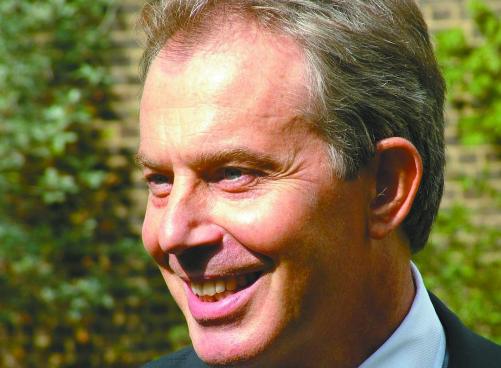PM defends ‘moderate’ Islam
But Cambridge speech sparks claims of underestimation of religion
Tony Blair marked an Interfaith Conference organised by Cambridge University with a call for “continued dialogue” between Muslim and non-Muslim communities and representatives. The Prime Minister’s speech was an effort to discredit what he argued were crude media portrayals of Muslims as dangerous extremists.
Blair argued that the “authentic voice” of Islam was one of “moderation and modernity”, as expressed by scholars and religious leaders within “various schools” of Islamic thought. According to its Director, David Ford, such claims reflect the integrity of the Cambridge Interfaith Programme (CIP).
 However, Blair was the subject of criticism, not only for the content of his speech but also for the distribution of individuals present at the conference. Labour peer Lord Ahmed accused Blair of using Cambridge as a “front”, enabling Downing Street to exclude Muslims who disagree with government policy.
However, Blair was the subject of criticism, not only for the content of his speech but also for the distribution of individuals present at the conference. Labour peer Lord Ahmed accused Blair of using Cambridge as a “front”, enabling Downing Street to exclude Muslims who disagree with government policy.
In response, Ford defended the CIP’s choice of delegates, pointing out that the conference venue limited numbers to 150, all of whom were selected on the basis of their holding “serious positions of authority” and being from “different walks of life”.
Blair’s speech also came under attack for its emphasis on so-called “moderate” Islam. Michael Ipgrave, the Archdeacon of Southwark and former national interfaith advisor to the Church of England, warned that such a term implies that religion is simply a lifestyle preference rather than an incredibly powerful force.
He added that Muslims and other religious adherents are caught in a bind of “double loyalty”, both to their faith and to their government, with “moderation” simply meaning according precedence to the latter.
Shaukat Aziz, the Pakistani Prime Minister, agreed with Blair, arguing in favour of moderation and tolerance in the face of the “multiple forces of tension” in “today’s interconnected world”.
Holding moderation as the ideal outward behaviour to be aspired to by a ‘true’ Muslim, both Aziz and Blair stressed the importance of the production of “responsible citizens”, following, in Blair’s terms, a “calm” Islam.
Conference rapporteur and Professor of History and Religious Studies at Pennsylvania State University, Philip Jenkins, stressed to delegates that countering extremism need not require treating religious issues with rational detachment but that it could be effectuated by means of a religiously motivated sense of morality.
Aref Nayed, former Visiting Fellow at Cambridge’s Faculty of Divinity echoed Jenkins’s claim, highlighting the stress placed within Islamic belief on God’s indiscriminate compassion.
The conference was intended as a step towards more fluid dialogue between political and religious leaders on important contemporary issues and is a necessary response to the changes and tensions that arise in a society which Ford called “complexly religious and secular”.
Miriam Boyles
 News / Fitz students face ‘massive invasion of privacy’ over messy rooms23 April 2024
News / Fitz students face ‘massive invasion of privacy’ over messy rooms23 April 2024 News / Cambridge University disables comments following Passover post backlash 24 April 2024
News / Cambridge University disables comments following Passover post backlash 24 April 2024 Comment / Gown vs town? Local investment plans must remember Cambridge is not just a university24 April 2024
Comment / Gown vs town? Local investment plans must remember Cambridge is not just a university24 April 2024 Interviews / Gender Agenda on building feminist solidarity in Cambridge24 April 2024
Interviews / Gender Agenda on building feminist solidarity in Cambridge24 April 2024 Comment / Does Lucy Cavendish need a billionaire bailout?22 April 2024
Comment / Does Lucy Cavendish need a billionaire bailout?22 April 2024





